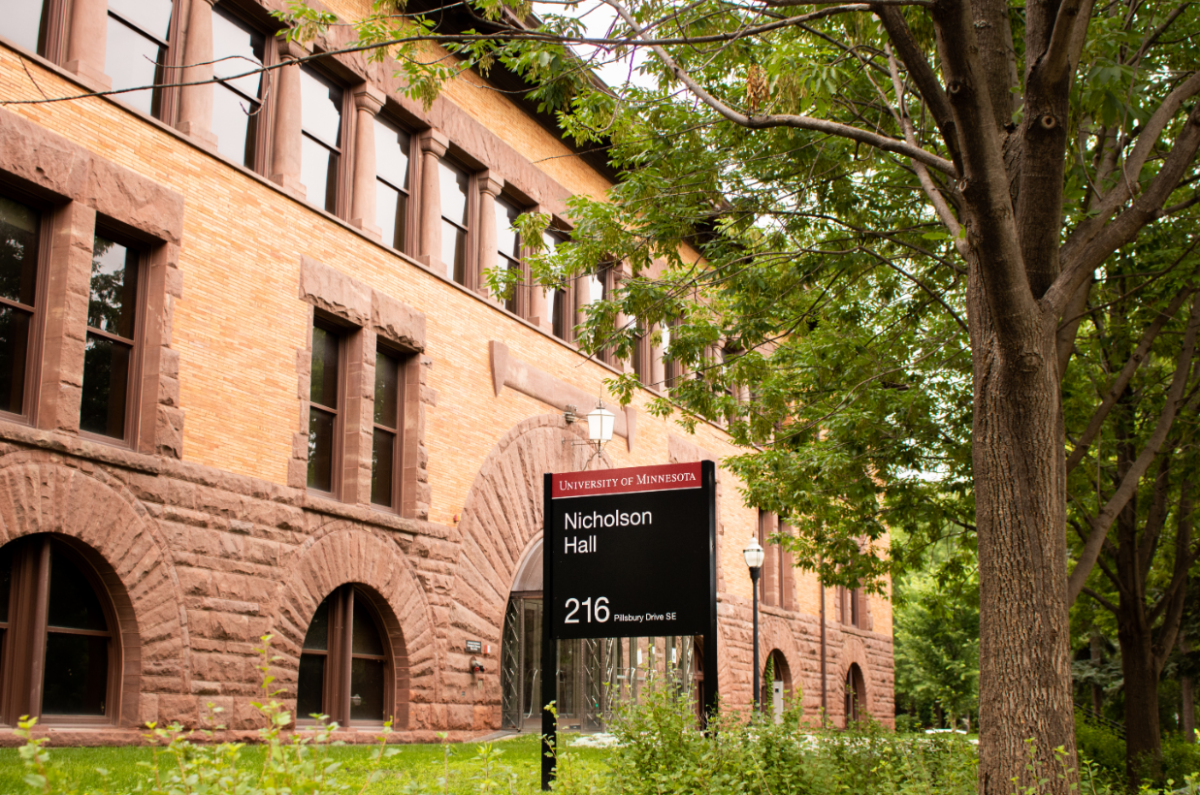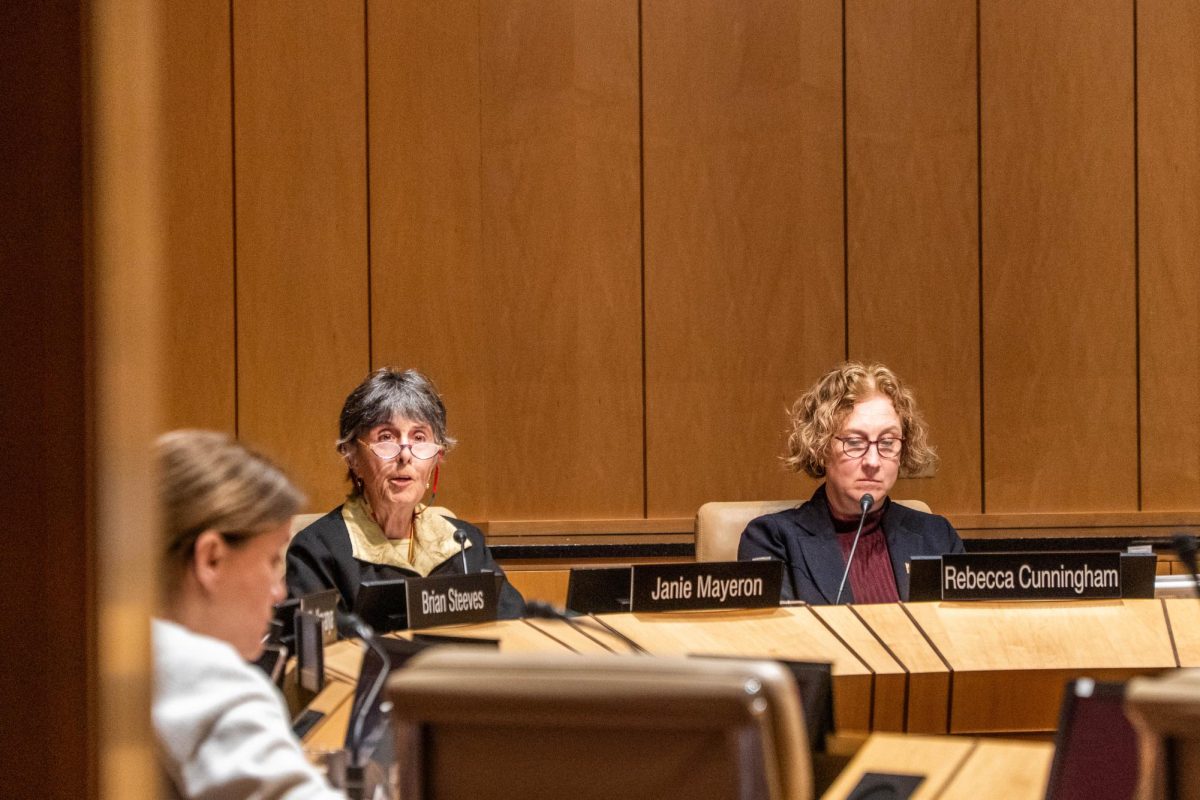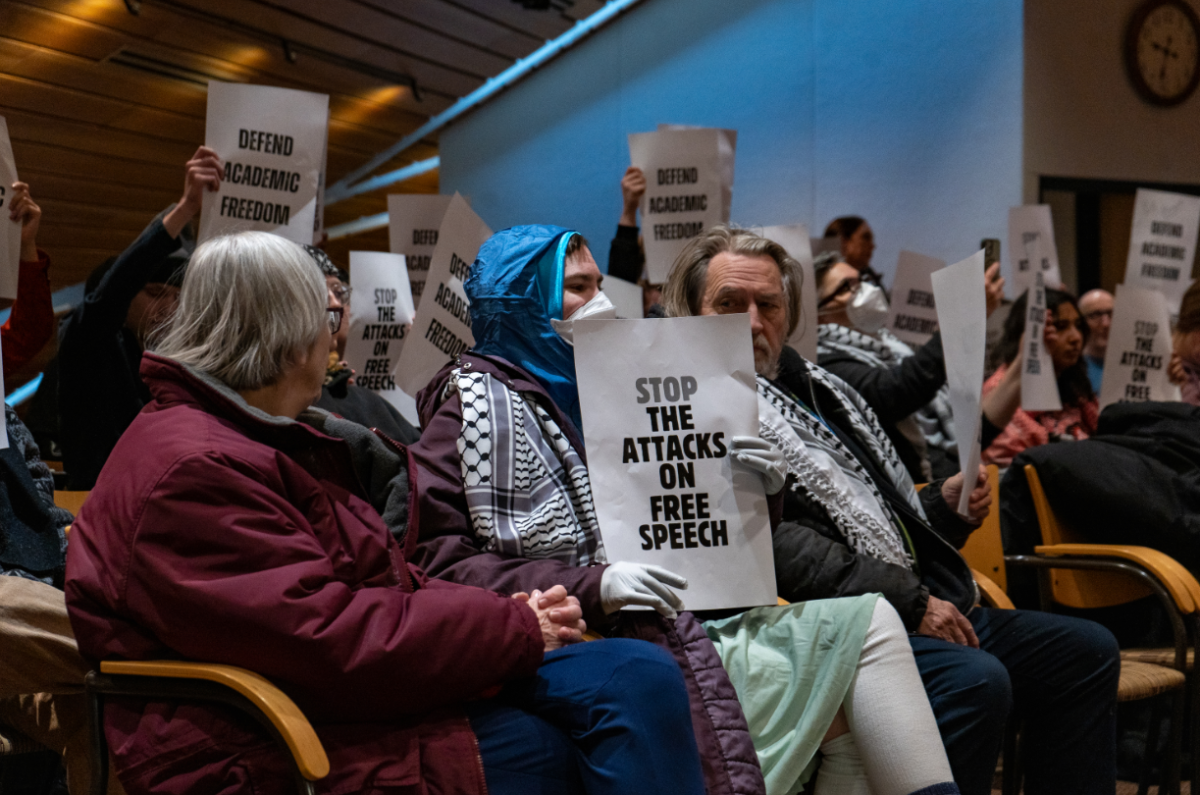The University of Minnesota’s Board of Regents unanimously voted to revoke the honorary naming of Nicholson Hall during its meeting on June 13 and 14.
The building home to the University’s Cultural Studies and Comparative Literature Department and the Center for Jewish Studies has been a center of debate for its controversial namesake, former Dean of Student Affairs Edward E. Nicholson.
During his tenure from 1917 to 1941, Nicholson took part in the surveillance of University students and faculty and helped repress open debate on campus by controlling what information students could circulate and who could serve in the student government.
University Spokesperson Jake Ricker said until a new name is decided upon, the building will be referred to by its address, 216 Pillsbury.
In the fall of 2023, a request submitted to Interim President Jeff Ettinger from present and past directors of the Center for Jewish Studies said Nicholson’s actions undermined University goals to ensure racial equity and open debate.
Per Board policy, when a revocation request is submitted, the Board must invite comments from interested members of the University community. Community members were asked to submit commentary on the revocation via a Google Form.
Of the 364 total respondents, 73.6% were in support of revoking Nicholson Hall’s name and 26.4% either opposed the revocation or did not submit comments that were explicitly supportive, according to the Board of Regent Docket from its May 10 meeting.
While the request for revocation was reviewed and approved by the Board, several additional steps must be taken to find a new permanent name, which will be conducted following Section VII of the Board’s Policy on Namings and Renamings, Ricker said.
The renaming process mirrors that of the revocation process, with a proposal for a new name. This process would be overseen by President-Designate Rebecca Cunningham, the All-University Honors Committee (AUHC), the Namings and Renamings Work Group (NRWG) and the Board of Regents, according to Section VII of Board Policy on Namings and Renamings. An agenda for this process is yet to be announced.
The decision to revoke the name began with a request to Ettinger, who then sent it to the AUHC for further deliberation.
The AUHC is responsible for overseeing awards and nominations for the University of Minnesota, including honorary namings.
The request was then delivered to NRWG, who decided on a final recommendation for the AUHC.
While the revocation was formally approved in the Board’s June meeting, Ettinger presented the resolution for revocation of Nicholson Hall’s name to the Board for review at its May meeting, where he recommended the revocation.
Former Director for the Center of Jewish Studies Riv-Ellen Prell said Nicholson frequently aligned himself with antisemites and racists during his time at the University, spending time and University resources to spy on minority and progressive students. By secretly barring many students from using first-class mail systems on campus, Nicholson blocked open communication among students and infringed on student privacy.
Prell, who led the research team supporting the request for the name change in 2019 and curated “A Campus Divided: Progressive Anti-Communist and Anti-Semistism at the University of Minnesota 1930-1942,” in 2017, said she was pleased with the University’s efforts to acknowledge its rocky history.
“I was truly impressed by how rigorous and fair I thought this process was,” Prell said. “I was impressed by what a thorough and critical process it was. It was done with a lot of integrity and transparency, and that is what was most important for me.”
With Nicholson’s legacy under scrutiny, Prell said it is complicated to judge whether people from the past should be held accountable by modern standards.
“The people that we honor, they have to be people we’d honor today,” Prell said. “To have a name on a building is a continuing honor. We have to ask, ‘Do we want that name in 2024?’”
The process of changing the name began in 2019, but due to meeting restrictions during the pandemic, it was not put into motion until recently.
While some see the renaming process of buildings on campus as a form of erasure of the University’s history, Prell said she is adamant University administration will not let that happen.
“The names will be maintained within the building, with information about that person,” Prell said. “I would never support the erasure of memory.”
University Law Professor Richard Painter said though he does not disagree with the revocation, the renaming of a building is not going to solve the University’s greater problems of racial inequity and discrimination on campus.
“My biggest concern is that we have serious issues with anti-semitism, Islamophobia,” Painter said. “There are pockets of this University where Black students do not feel comfortable. We’ve got the problem, and I think that they got to stop sweeping those under the rug and they got to deal with them and I think renaming the building isn’t gonna solve today’s problem.”





















Barbara Nicholson
Aug 22, 2024 at 1:07 pm
Quantity does not equal morality. He served long but did a disservice to many.
Catherine Holtzclaw
Jul 11, 2024 at 11:38 am
Dean Nicholson devoted 40 years of his career to University of Mn You are erasing that proud work
Tricia
Jun 29, 2024 at 2:51 pm
When we accept that the widespread discomfort for the non-white, non-male, non-christian, non-binary, non-wealthy among us was intentionally cultivated and customized for the UMN by our founding Regents, we can agree with Painter that changing the name of one building won’t solve this issue. It is a step in a different direction, though.
side note: Are there no copy editors in The Hubbard School? The last paragraph of this article could’ve benefited from one.